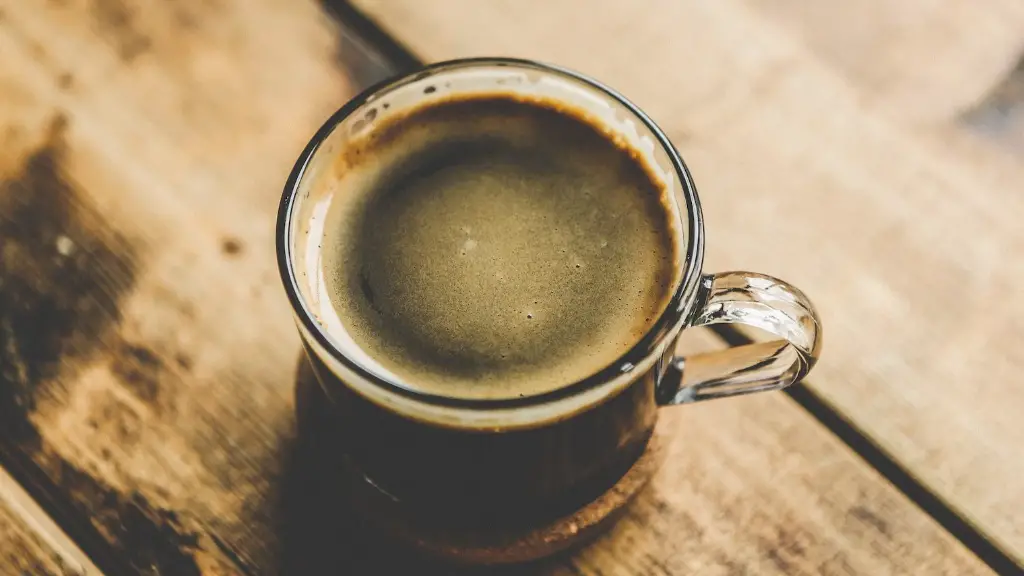Does Drinking Coffee Cause Migraines?
Coffee is one of the world’s most popular drinks, and its appeal is broad, reaching people of all ages and walks of life. But can drinking coffee cause migraines? This is a question that has been debated for decades, and the answer isn’t yet straightforward. In this article, we’ll explore the potential connection between coffee and migraines to provide a clearer picture of this enigmatic relationship.
For many coffee drinkers, there’s a significant link between caffeine consumption and migraines. Caffeine can cause blood vessels to constrict, increasing the risk of a migraine attack. The relationship isn’t the same for everyone, however – some people may experience no change, while others may experience a dramatic decrease in migraine intensity or frequency when drinking coffee.
There’s research to suggest that drinking two or three cups of coffee daily may reduce the risk of migraines. This is because caffeine acts on the central nervous system, where it acts as a vasoconstrictor, narrowing blood vessels. This can reduce the intensity of a migraine and make it more manageable.
Some people report headaches after consuming coffee. This could be due to the presence of other substances such as tannins, theophyline or other chemicals found in coffee. These substances, when present in larger amounts, can increase the risk of headaches or migraines. It’s important to note, however, that these are just theories and no scientific research has been able to conclusively link any of these compounds to migraines.
Just as it can cause headaches, coffee can also be used to reduce the intensity of a migraine attack. The caffeine present in the cup of coffee can reduce the symptoms or potentially eliminate the migraine altogether. In addition, the warmth of the coffee can help to relax tense muscles, further reducing the headache.
It’s also important to note that some people may be sensitive to the effects of caffeine. For these individuals, consuming even a small amount of coffee can cause an uncomfortable headache. Even in these cases, however, drinking a cup of coffee could work to lessen the pain. It’s just important to pay attention to your body and how it responds to the effects of caffeine.
The debate surrounding the potential link between coffee and migraines is ongoing. Doctors, scientists and researchers around the world continue to explore this enigmatic relationship, but the answer isn’t likely to be straightforward. Ultimately, the effect of coffee depends on a wide range of factors, including an individual’s tolerance for caffeine and the presence of any other migraine triggers. People may want to experiment to find the right balance for them between indulging in a delicious cup of coffee and avoiding pain from migraines.
Does Caffeine Affect Drug Performance?
When it comes to drugs used to treat and prevent migraine headaches, there’s evidence to suggest that caffeine consumption may affect the performance of these drugs. If consumed in large amounts on a regular basis, caffeine has the potential to decrease the effectiveness of certain migraine medications. In most cases, however, such an effect will only occur if more than four cups of coffee are consumed per day.
It’s important to keep in mind, however, that this is only a theory and has not yet been confirmed by scientific research. To be sure, it’s advisable to consult a doctor before making any changes to your caffeine or migraine medications. Your doctor may also recommend reducing your caffeine intake if you are experiencing an increase in migraine attacks.
In addition to the potential effects on medications, there may also be an effect on supplements taken to prevent or reduce migraine symptoms. Supplements such as riboflavin, magnesium and feverfew are often used to reduce migraine intensity and frequency, but caffeine’s effects may impact their effectiveness. Again, it’s best to speak with your doctor before making any changes to your supplement routine.
Ultimately, it’s important to understand the potential effects of caffeine on migraine medications and supplements. Doing so can help you better manage your migraines and allows you to keep drinking coffee if you enjoy it without compromising your migraine treatment.
Signs of Caffeine Withdrawal
It’s possible to become addicted to caffeine, resulting in physical dependence. Those who drink a lot of coffee may find that they experience uncomfortable physical and mental symptoms when they attempt to stop drinking coffee. This is known as caffeine withdrawal and can manifest in a variety of ways, including headaches and migraines.
When quitting coffee, it’s important to start with small amounts, gradually reducing as you adjust to life without coffee. This will help to minimize the unpleasant side effects of caffeine withdrawal. Additionally, some people may consider taking an over the counter pain reliever to mitigate the effects of the withdrawal headache or migraine.
It’s also important to note that in some cases, the headaches or migraines that one experiences during caffeine withdrawal can become chronic and last for months. In this instance, it may be advisable to seek medical help. Your doctor may be able to recommend a course of medication to help reduce the intensity or duration of withdrawal headaches.
In either case, it’s important to be aware of the potential risks associated with quitting coffee. Withdrawal headaches and migraines can be unpleasant and can interfere with one’s quality of life, so it may be best to avoid such a large reduction in caffeine consumption.
Maintaining a Healthy Lifestyle
Though there may be a relationship between caffeine consumption and migraines, it’s important to maintain a healthy lifestyle to mitigate the risk of headache and migraine attacks. This includes engaging in regular physical activity and eating a balanced diet. Additionally, drinking plenty of water throughout the day can help to rehydrate the body and potentially reduce the risk of migraine attacks.
To ensure that coffee is not causing your migraines, it may be worth tracking your intake and ensuring that you consume no more than two to three cups per day. In addition, it’s best to limit the amount of other caffeinated beverages, such as energy drinks, that you consume. Reducing your caffeine intake slowly can help to avoid unpleasant withdrawal symptoms.
Furthermore, reducing your intake of processed foods and other potential headache triggers can also be beneficial. Common triggers include MSG, aspartame, nitrites and nitrates, as well as certain food additives such as artificial sweeteners. Reducing your intake of these substances may help to reduce the frequency of migraine attacks.
Ultimately, maintaining a healthy lifestyle can help to reduce the severity and frequency of migraine attacks. With the right balance between exercise, diet and coffee consumption, you can still enjoy your cup of coffee without putting yourself at risk for headaches or migraines.
The Potential Benefits of Coffee and Migraines
It’s also important to note that coffee may also have some positive effects on migraine pain. This can include reducing the duration and intensity of a migraine attack. In addition, coffee can also help to improve alertness and productivity, reducing the risk of mental fatigue that could lead to a headache.
In some cases, coffee can even be used as a preventative measure against migraine attacks. This is because caffeine has the potential to reduce inflammation and act as a vasoconstrictor, narrowing blood vessels and reducing the risk of migraine headaches.
Coffee is also a great source of antioxidants, which can benefit the body in a variety of ways. Studies have shown that coffee may potentially help to reduce the risk of certain types of cancer, as well as reduce inflammation. Coffee could also help to reduce the risk of certain types of heart disease and diabetes.
Though there is still much to learn about the relationship between coffee and migraines, there is evidence to suggest that it may benefit individuals suffering from chronic migraines. If a person is able to drink coffee in moderation and maintain a healthy lifestyle, they might reduce their risk of attack and even potentially benefit from the potential positive effects of coffee.
Overall Conclusions
Though the potential link between coffee and migraines is still debated, it’s clear that there may be a relationship between the two. The effects of caffeine may vary between individuals, so it’s important to pay attention to how your body responds to coffee. If you are prone to migraines, it’s important to be aware of your caffeine intake and the potential risks that come with it.
It’s important to keep in mind that there may be other triggers for headaches and migraines. Keeping up a healthy lifestyle, avoiding potential triggers, and staying mindful of your caffeine consumption can help to minimize the risk of attack and ensure that you can still enjoy a cup of coffee guilt free.





